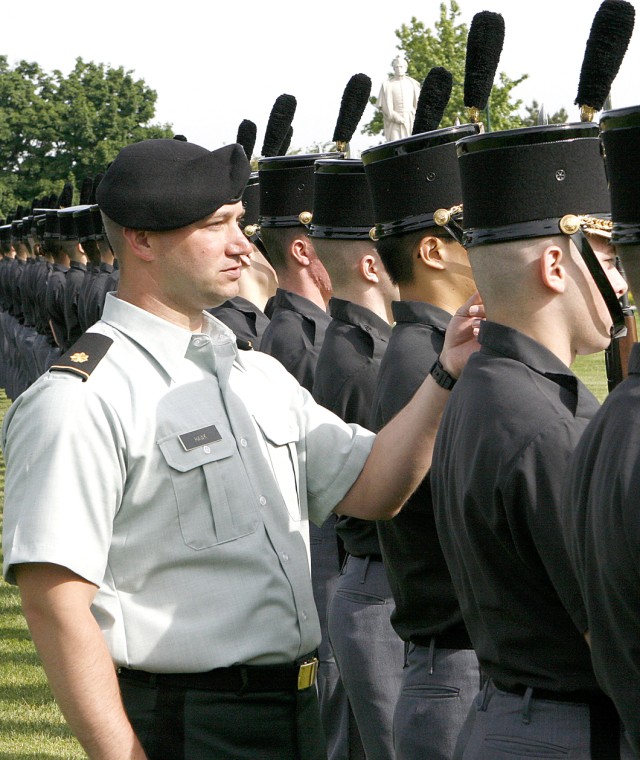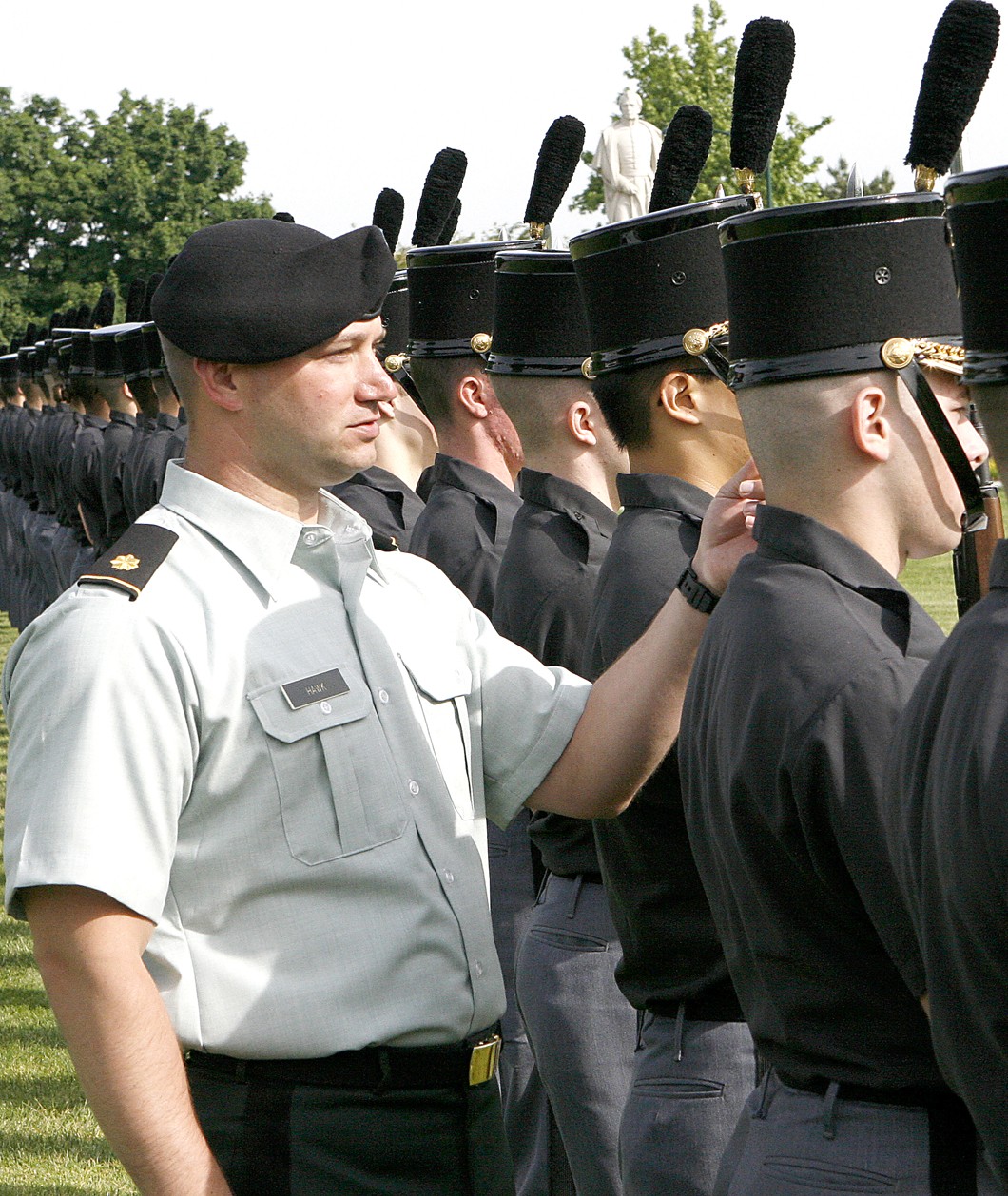
WEST POINT, N.Y. (June 3, 2010) -- Two days before the Class of 2010 cadets tossed their hats high in the air, another significant West Point graduation took place inside the Haig Room at Jefferson Hall.
The May 20 ceremony officially welcomed the current crop of Army officers to replenish the ranks of tactical officers at West Point, after graduating from the Eisenhower Leadership Development Program. The 22 captains and majors concluded the yearlong program at West Point and Columbia University where they earned a master's degree in organizational psychology.
The tactical officers, or TACs, serve as the primary leader developers for each company of cadets. A TAC aids in shaping the identity of officership and creates an environment which facilitates development for the cadets.
To prepare officers for this role, the ELDP offers a comprehensive curriculum which enhances self-awareness and increases leader development effectiveness.
The course is challenging, but manageable, several officers said prior to graduation. And when it becomes overwhelming, the support from the professors makes all the difference.
Capt. Seth Hall is more than a decade removed from his last classroom experience. Getting back into the academic mindset wasn't easy, but knowing he will be an influencing factor in the lives of future officers was an inviting incentive. As he neared the end of his tour as company commander at Fort Lewis, Wash., Hall was looking for the next opportunity for him to develop as an officer.
"I thought (ELDP) sounded interesting and I loved the opportunity to come to West Point and share a lot of the things I've learned in the Army with these young future officers," Hall said. "I look forward to the chance to communicate some of the things that have made me successful and instill in them a love of Soldiers and a love of taking care of Soldiers they can take with them when they go out in the operational force."
In an institution where nearly everything is cadet-driven, tactical officers serve more as mentors and advisors than their typical role as commanders of Soldiers.
Hall said it is counterintuitive for an officer to lead from the rear but understands this is how cadets grow into leaders at West Point. Capt. Tod Willoughby, formerly a forward support company commander at Fort Campbell, Ky., looks forward to assisting in that process.
"This is a good chance to influence the future of the Army," Willoughby said. "These cadets are just top-notch people and you can see the potential in all of them as you talk to them. It's an honor to have a part in their development, where you can work with (them) day-to-day and share my experiences with them."
The Cadet Leader Development System guides the holistic development of a cadet. These lessons, coupled with the opportunity to speak with current TACs and senior officers, provided the students a better idea of what their job will entail.
"They gave us institutional perspective on what CLDS actually means and then we, as a group, discussed different ideas and methods of incorporating that into a company," Willoughby said. "It helped familiarize me with what the academy intends for us to do and how it intends for us to develop cadets."
Having graduated here almost 11 years earlier, Maj. Timothy Gatlin knows the stress cadets face firsthand and said he wants to be the reassuring presence cadets can turn to when they face a leadership challenge.
"I've been in some fairly stressful situations and have remained calm," Gatlin said. "And I've been a cadet and experienced that stress as well. So I think I can teach them how to manage that."
Maj. Jason Toole, ELDP program coordinator, said the experience these officers bring from their recent commands is significant, with a majority of them having multiple deployments in support of Operations Iraqi and Enduring Freedom.
Having battlefield leadership experiences to share with cadets is invaluable, but it also gives those officers a unique professional development opportunity.
The common denominator among these officers of diverse backgrounds and skill sets, Capt. David O'Leary offered, is their success rate in the Army.
"It was a robust application process and took a lot of time, so it wasn't an immediate selection," O'Leary said. "We know what it takes to be successful in the Army; we've been successful and have worked with successful people. Now we can impart that onto cadets, or at least some of those elements, whether it be moral, ethical or an attention to detail."
Although the lessons are completed, tests taken and diplomas dispersed, the learning is far from over for these TACs. In some ways, it's about to begin again.
"With everything coming at you through the proverbial fire hose, I think these lessons will have a latent effect," O'Leary said. "We're not going to necessarily make sense of all those lessons today, but I think as we go through the process of being TAC officers, those lessons will make sense and come into sharper focus. I don't think the learning ends, and as we put this into practice, we'll continue to learn from this."
To learn more about the ELDP, visit: www.dean.usma.edu/bsl/ELDP.cfm.

Social Sharing